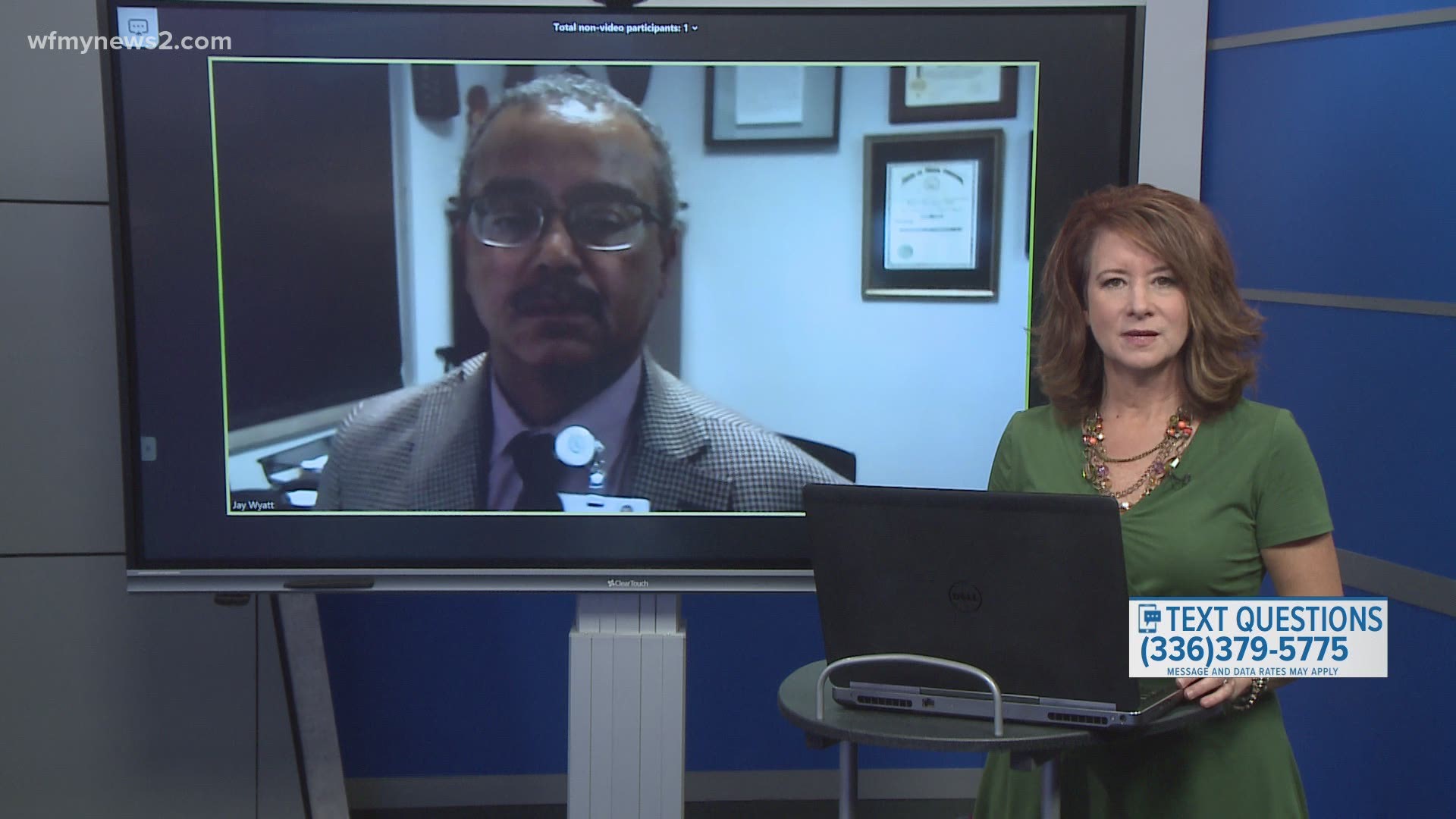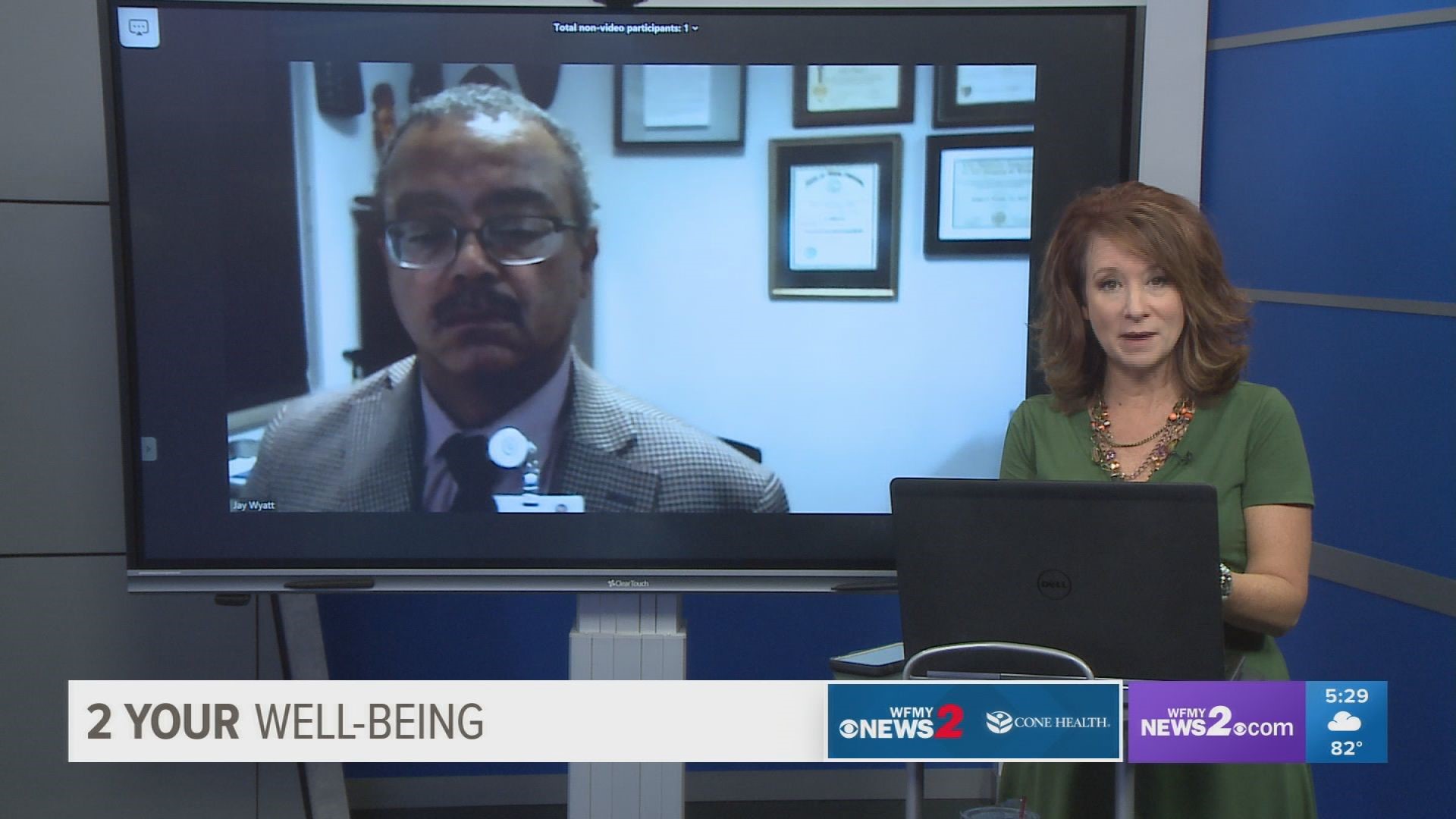GREENSBORO, N.C. — Coronavirus is a danger for everyone. But it can affect different communities in different ways.
First, let's establish that no one is immune to COVID-19, even former patients. Dr. Jay Wyatt III, the Chief Medical Officer for Moses Cone Hospital said "There are people who may have been exposed to COVID and contracted it who may have some immunity. But we have not been able to isolate those people out and show that that immunity either is complete or lasts forever."
COVID-19 is considerably more dangerous if you're over 65. That doesn't mean young people can ignore the pandemic. Not only can it be dangerous for them, but they can also bring the virus to a loved one who could be particularly vulnerable to the disease. "The reason we may not be noticing the younger generation is because they don't show symptoms the same way," said Dr. Wyatt. He added "I don't think their chance of getting it is less. I think they don't show symptoms."
What about race? Coronavirus can't see color but we see the pandemic has disproportionately affected communities of color, in particular Black and Latinx communities. Dr. Wyatt said "About 30-33% of the black population in our area has been COVID positive. About 25% of the Latinx community relative to the total group. But that's much higher than their prevalence in the population."
So what can be done to help stop the spread? Dr. Wyatt says the key is testing early.
"I think they need to follow the same rules as everyone else is and they are. But somehow try to get them in to see people sooner when they start to have symptoms. You see a lot of people sort of attributing their symptoms to asthma or an allergy and it's seasonal. But really a lot of these people turn out to have COVID and they're not seeing people early enough to get tested. The only way we're going to curtail more spread is to test early and then isolate as much as possible."
Here is part 2 of our full interview with Dr. Wyatt.


